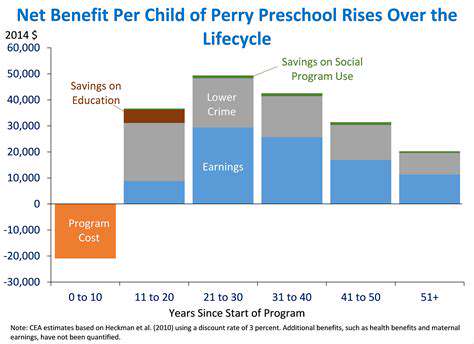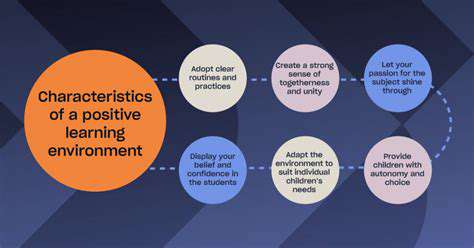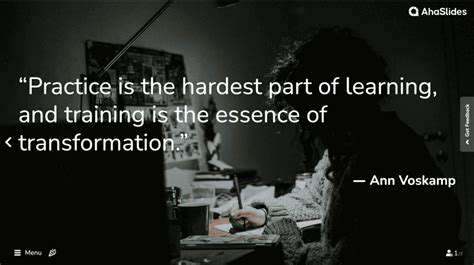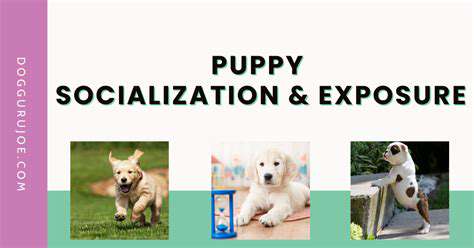Continuing Socialization After the Puppy's Critical Period
Puppy socialization is a crucial period in a puppy's development, impacting their future behavior and interactions with the world. Early exposure to various sights, sounds, people, and other animals is essential for shaping a well-adjusted and confident adult dog. This period typically extends from about 3 weeks of age to 12 weeks, although the optimal window can vary depending on the individual puppy.
During this time, puppies are highly receptive to new experiences. Successfully navigating these experiences lays the foundation for a dog that is comfortable in various situations, from bustling parks to quiet homes.
Benefits of Early Socialization
A well-socialized puppy is more likely to develop into a well-adjusted adult dog. This means less fear-based aggression, better interactions with strangers, and a greater ability to adapt to new environments. Socialization helps prevent behavioral problems that can arise from a lack of exposure during critical developmental stages.
Moreover, a socialized puppy is generally happier and more well-rounded. They are more likely to engage in positive interactions with other dogs, cats, and people, fostering a more enriching and enjoyable experience for everyone involved.
Types of Socialization Experiences
Socialization encompasses a wide range of experiences. This includes exposure to different people, including children and adults, of varying sizes and ages. It also includes interactions with other dogs, cats, and other animals, both large and small. Furthermore, exposure to various environments, such as parks, stores, and even car rides, is crucial for a well-rounded socialization experience.
Introducing puppies to diverse sounds, sights, and smells, such as loud noises, busy streets, and different textures, is also a vital part of their socialization.
Managing Fear and Anxiety in Puppies
It's important to recognize that some puppies may react more strongly than others to new experiences. Observing their body language is key to understanding their comfort level. Signs of stress or anxiety, like tucked tails, panting, or whimpering, should be taken seriously.
Slow and gradual introductions to new stimuli are crucial to minimize stress and maximize the positive learning experience. Rewarding calm and positive responses helps reinforce the desired behavior.
Safe and Controlled Socialization
Always prioritize the safety and well-being of the puppy during socialization. Supervise all interactions and ensure a positive experience. Avoid situations that could lead to overwhelming or negative experiences for the puppy. Avoid situations where the puppy might be exposed to aggressive or fearful dogs.
Ensure that any interactions with other animals are supervised and controlled. This prevents potential conflicts or injuries.
Addressing Potential Challenges
Some puppies may exhibit challenges during socialization, such as fear or aggression. Understanding the underlying causes and addressing them with patience and professional guidance is essential. Consult a veterinarian or certified dog trainer for personalized advice and support.
Consistent and positive reinforcement is key to overcoming any challenges that arise in the socialization process. Building trust and creating positive associations with new experiences is crucial for long-term success.
Importance of Ongoing Socialization
Socialization is not a one-time event; it's an ongoing process that continues throughout a puppy's life. Regular exposure to new experiences and people helps maintain the positive behaviors learned during the critical socialization period. Maintaining a consistent socialization routine throughout their life helps to keep their social skills sharp and their confidence high.
Continued socialization is a vital aspect of a puppy's development, ensuring that they remain well-adjusted and confident throughout their lives. This continued interaction helps them adapt to different situations, promoting a positive and harmonious relationship with their environment and those around them.
Continuing Socialization: Why It Matters

Building Stronger Connections
Continuing socialization, whether with old friends or meeting new people, is crucial for maintaining a robust social network. Strong social connections are vital for emotional well-being and overall happiness. These connections offer support, understanding, and opportunities for shared experiences, enriching our lives in countless ways. Developing and nurturing these bonds throughout life can significantly improve our mental and emotional health.
Regular interaction with others fosters a sense of belonging and reduces feelings of isolation or loneliness. This, in turn, can lead to improved self-esteem and a greater sense of purpose. The process of engaging in meaningful conversations and activities with others helps us feel appreciated and valued, which are essential components of a fulfilling life.
Expanding Perspectives and Knowledge
Socialization provides opportunities to learn from others, broadening our understanding of the world and different perspectives. Engaging in conversations with individuals from diverse backgrounds allows us to challenge our preconceived notions and gain new insights. This constant exchange of ideas is crucial for intellectual growth and development. It helps us develop empathy and tolerance, fostering a more inclusive and understanding society.
We can gain valuable knowledge and insights through interacting with people who have different experiences and expertise. By listening to their stories and viewpoints, we can learn new skills, discover new hobbies, and deepen our understanding of various subjects. This constant learning and growth are essential elements of a vibrant and enriching life.
Maintaining Physical Health
Socialization can play a surprising role in physical health. Studies have shown that strong social connections can contribute to a longer lifespan and a healthier lifestyle. Maintaining active social participation can lead to better stress management and a stronger immune system. Shared activities and support systems can encourage healthier choices and routines.
Enhancing Emotional Well-being
Continuing socialization is fundamentally important for emotional well-being. A robust support network provides a safety net during challenging times and a source of encouragement during moments of joy. Having friends and family to confide in, celebrate with, and lean on during hardship is invaluable. Social interaction can alleviate feelings of stress and anxiety, improving mental health and emotional resilience.
Fostering a Sense of Community
Participating in social activities contributes to a stronger sense of community. Building relationships with neighbors, colleagues, and members of your local community fosters a sense of belonging and shared purpose. This shared sense of community can create a supportive environment for personal growth and collective well-being. It encourages cooperation and mutual support, which are crucial for the overall health and vibrancy of a community.
Methods for Post-Critical Period Socialization
Formal Methods of Post-Critical Period Socialization
Formal methods of socialization, often employed by educational institutions and government bodies, play a crucial role in shaping individuals' understanding of societal norms and expectations after the critical period. These methods typically involve structured curricula, mandated learning experiences, and defined roles for both instructors and students. For example, schools teach civic responsibility through history lessons, and government agencies foster social integration through community outreach programs. This structured approach, while potentially less adaptable to individual needs, offers a consistent framework for transmitting societal values and expectations to a broader population.
Furthermore, formal socialization mechanisms often utilize standardized assessments and evaluations to gauge the effectiveness of the programs and ensure individuals are meeting certain benchmarks. This process, while sometimes criticized for its potential to limit individual expression, can also provide a systematic approach to measuring progress and ensuring that core societal values are understood and internalized. The formal structures and defined expectations can provide a sense of order and predictability that is essential for navigating complex social environments.
Informal Methods of Post-Critical Period Socialization
Informal methods of post-critical period socialization are just as impactful, though often less structured and more subtle. These methods encompass a wide range of interactions and experiences that shape one's understanding of societal values and expectations. Interactions with family members, friends, and community members provide a rich tapestry of experiences that help individuals develop a nuanced understanding of social dynamics beyond the confines of formal institutions. These interactions are often less directive and more responsive to individual needs and personalities, leading to a deeper and potentially more personalized understanding of societal norms.
Observing and modeling behaviors of others, particularly role models, is another crucial aspect of informal socialization. Individuals often learn by observing and imitating the actions and attitudes of those around them, particularly within their peer groups or family structures. This process, while often subconscious, can be highly effective in shaping attitudes and beliefs about social norms and acceptable behaviors. Exposure to diverse perspectives and viewpoints within informal settings can lead to more comprehensive and individualistic interpretations of societal values.
Media, including books, movies, and online platforms, also plays a significant role in shaping individuals' perceptions and understandings of societal norms and expectations. Media exposure often provides a broader range of viewpoints and experiences than what individuals might encounter in their immediate surroundings. However, it's crucial to acknowledge the potential for misinformation and biased perspectives within these media channels, necessitating a critical evaluation of the information consumed. Consequently, individuals must develop critical thinking skills to discern reliable and credible information, ultimately contributing to their capacity for responsible and informed socialization.

Long-Term Benefits and Maintaining a Socialized Adult Dog
Long-Term Impacts of Socialization
Socialization during puppyhood plays a crucial role in shaping a dog's adult personality and behavior. A well-socialized dog is typically more adaptable, confident, and less prone to fear-based aggression or anxiety. This translates to a more harmonious relationship with their human companions, as well as a greater ability to navigate various social situations, from interactions with other dogs to encounters with strangers and novel environments. Proper socialization lays a strong foundation for a dog's overall well-being and happiness throughout their life.
Conversely, a lack of adequate socialization can lead to behavioral problems that are more challenging to address in adulthood. These problems can range from simple anxieties and reactivity to more severe issues like aggression or fear-based avoidance. Addressing these issues later in life often requires more intensive training and potentially professional intervention, highlighting the importance of early socialization experiences.
Sustaining Socialization Throughout a Dog's Life
While puppyhood is a critical period, socialization isn't a one-time event. Continuing to expose your adult dog to new sights, sounds, people, and other dogs is vital for maintaining their social skills and preventing the development of negative behaviors. This ongoing socialization ensures that your dog remains adaptable and comfortable in diverse situations, fostering a positive and well-adjusted canine companion.
Regular visits to dog parks (with careful consideration of your dog's temperament and the park's environment), controlled interactions with other dogs, and exposure to various people and environments are all essential components of ongoing socialization. This proactive approach can help prevent anxieties from escalating and reinforce positive social interactions.
Maintaining a Healthy Socialization Routine for Adult Dogs
Maintaining a socialization routine for your adult dog involves careful planning and consideration of your dog's individual needs and sensitivities. Start with short, controlled exposures to new stimuli, gradually increasing the duration and intensity as your dog demonstrates comfort and confidence. Positive reinforcement techniques are crucial throughout this process, rewarding calm and appropriate responses to new situations. Always prioritize your dog's comfort and safety, ensuring that the experiences are positive and stress-free.
Understanding your dog's body language is paramount. Pay close attention to signs of stress or anxiety, such as panting, lip licking, or avoiding eye contact. If your dog displays these signs, immediately remove them from the situation and offer a calming reward. Consistency in this approach is key to building a positive and lasting socialization experience for your adult dog.











